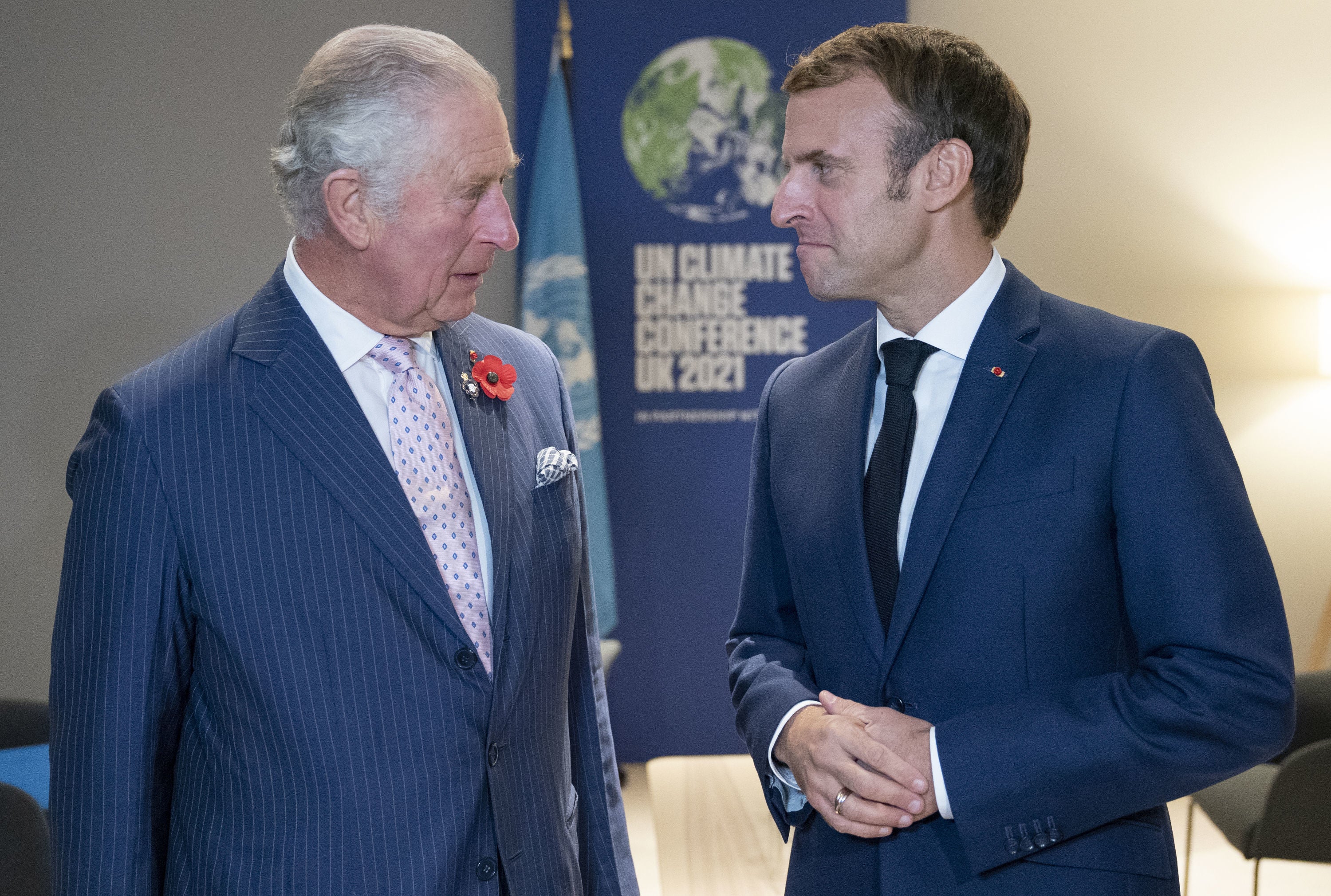It is a great shame that the renewed entente cordiale has been halted
Editorial: A little royal glamour and some pomp and ceremony would have no doubt helped remind the UK and France of their long historical association

The postponement of the state visit to France is a disappointment and embarrassment for all concerned.
After the highly successful UK-France summit a few weeks ago, the adoption of the Windsor Framework, and the continuing close cooperation on the war in Ukraine, the arrival of the King and Queen Consort in Paris as the destination of the first official visit of the reign would have further repaired relations with France, and the EU more widely.
So it is a real shame that continuing violent protests against pension reform have been deemed too much of a security risk for the King and Camilla.
Much work has been done in recent weeks to improve the Anglo-French entente cordiale. Rishi Sunak deserves great praise and credit for the rapport he has developed with Emmanuel Macron.
Mercifully, gone are the days when Liz Truss could cheerfully think aloud about whether Britain’s historic ally, with the blood of their fallen mingled on battlefields for more than a century, was more friend or foe. Boris Johnson, too, was cordially loathed for his role in Brexit and the reckless souring of relations since the ill-fated EU referendum in 2016. Theresa May did her best, but her brittle style and unstable government commanded neither affection nor confidence.
A little royal glamour and some pomp and ceremony would have no doubt helped remind both nations of their long historical association, how much they actually rely on one another, and how much, as the oldest liberal democratic states on the continent, we have in common.
President Macron seems keen to revive traditional friendships, and was outstandingly gracious on the death of the Queen, when he reflected that: “To you, she was your Queen. To us, she was The Queen. She will be with all of us forever.”
Such generosity of spirit has been all too readily forgotten in the acrimonious atmosphere of Brexit. Yet, while there remain many challenges, the Brexit issue is beginning to lose its destructive salience in domestic British politics, and so it must too in diplomacy.
The French government, in consultation with Buckingham Palace, was right to delay the event until early summer. With riots on the streets of Paris, it was not the safety of the King and Camilla that was in jeopardy, but of their host, the president: the loathed focus of the protests and strikes.
Members of the House of Windsor touring the Palace of Versailles would also have created some unfortunate “optics” as Parisians were setting light to the streets in protest at the cost of living and the president’s high-handed reforms to pensions.
The disturbances in France are also a reminder that the UK is hardly alone in suffering an economic crisis and severe pressure on budgets and public spending.
France’s long-standing commitment to nuclear power has taken some of the edge off the energy crisis, but many of the same problems are afflicting every European economy, and are all too obviously a direct consequence of Vladimir Putin’s war on Ukraine.
Britain and France, as Europe’s two nuclear powers and permanent members of the UN Security Council, have a special duty to form a common front against Russia. It certainly puts into stark perspective some of the residual Brexit wrangles, on the migrant crisis, fishing quotas and trade checks across the Irish Sea.
Now that political relations between France and the UK are warming, the work of making Brexit work better and extending cooperation can continue in a much friendlier and mutually respectful atmosphere.
However, the proximate cause of the postponement seems rather more mundane. Apparently, workers at the branch of the French state responsible, literally, for rolling out the red carpet will be on strike, and the King and Queen Consort might not have been properly greeted and catered for in the style one might expect from the elegant cradle of haute cuisine. Things were getting simply impractical.
In any case, the visit is still “on” for the summer, and the King is no doubt anxious to replicate the success of his great-great-grandfather, Edward VII.
A frequent private visitor to, and avid consumer of the delights of, Paris, Edward’s official arrival in 1903 was an unexpected success. It helped dissolve some of the historic bitterness and recent imperial rivalries, and thus assisted the conclusion of the entente cordiale a few years later, the most enduring alliance in Europe.
If Charles III can do his bit to renew the entente after the traumas of recent years, then he will be popular on both sides of the Channel. If we have to wait a few months longer, well, c’est la vie.






Join our commenting forum
Join thought-provoking conversations, follow other Independent readers and see their replies
Comments